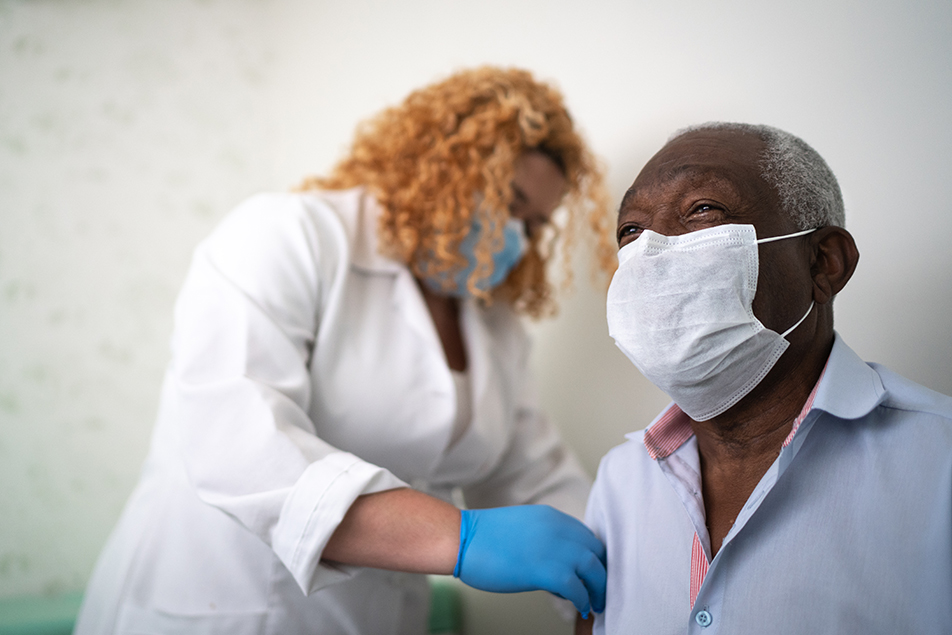
This post was written by Heather Willison, MSN, FNP-C, PPG – Allergy, Asthma and Immunology.
With the approval and roll out of two COVID-19 vaccines in recent weeks, the topic is prominent in social media feeds and news cycles. Many are debating whether or not to commit to receiving the vaccine when it’s their turn. I believe that information is power, but sometimes it’s hard to sift through all the information out there. The purpose of this post is not to try to sway you one way or another, but rather to address concerns about vaccine reactions in general, rather than any specific vaccine.
Common responses to vaccines
The most common vaccine reactions include:
- Redness, warmth, swelling, and/or soreness at the injection site
- Low grade fever
- Muscle aches
- Headache
- Fatigue
It’s important to remember that these symptoms are short-lived, and a sign that your immune system is responding appropriately to the vaccine.
Allergic reactions to vaccines
An allergic reaction a vaccine is different than the short-term symptoms previously mentioned. Rash, hives, difficulty breathing, and/or swelling are signs you would expect to see with an allergic reaction to a vaccine.
Allergic reactions to vaccines are typically caused by the components in the vaccine. For instance, some flu vaccines contain eggs. If you have a history of a mild allergy to egg (hives or rash) then the flu vaccine is safe to receive, however, someone with a history of anaphylaxis (serious allergic reaction) to eggs should request a flu vaccine that does not use eggs in the manufacturing process. Egg protein is also found in yellow fever vaccines.
Other vaccine components that have been known to cause allergic reactions include:
- Gelatin – A protein made from the byproducts of cows or pigs, is a stabilizing agent found in many vaccines
- Thimerosal – A mercury-based preservative
- Neomycin – An antibiotic used in vaccines to prevent bacterial contamination during manufacturing
It’s important to note that some allergic reactions thought to be due to vaccines were eventually determined to be caused by an allergy to the latex found in the rubber stopper on the vaccine vial or in the syringe plunger.
If there is a suspected allergy to a vaccine component, it would be recommended that these concerns be addressed by an allergist. Skin testing may be appropriate before the vaccine is administered.
Your risk and steps to take
It’s estimated that nearly 250 million vaccine doses are given annually, with about 1 dose in a million resulting in a serious allergic reaction (i.e. anaphylaxis). Any serious event following a vaccine should be reported to the Vaccine Adverse Event Reporting System (VAERS), so that an investigation can be launched to determine if the reaction was directly caused by the vaccine. Any suspected vaccine reactions should be further investigated rather than avoiding future vaccines, which could leave patients at greater risk of illness.
If you are experiencing symptoms such as shortness of breath, difficulty breathing or anything else of concern, please seek medical care immediately.
